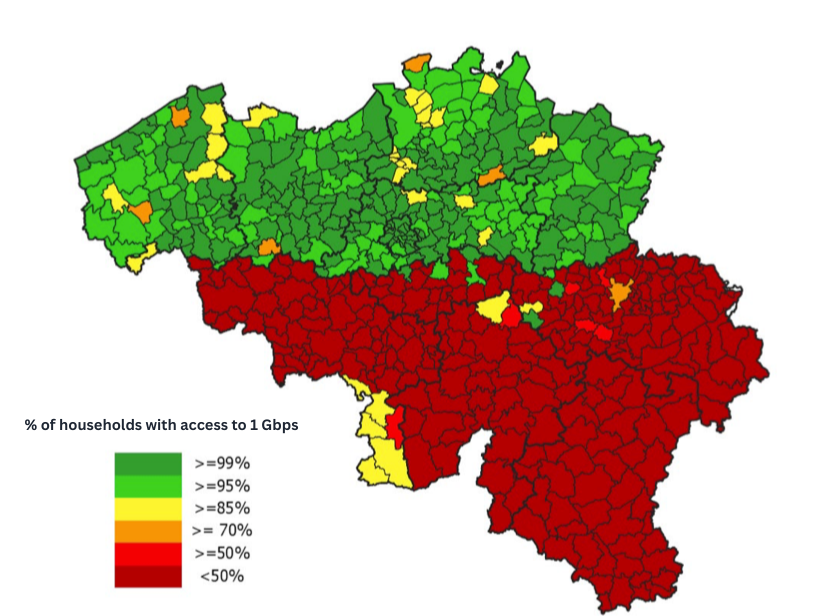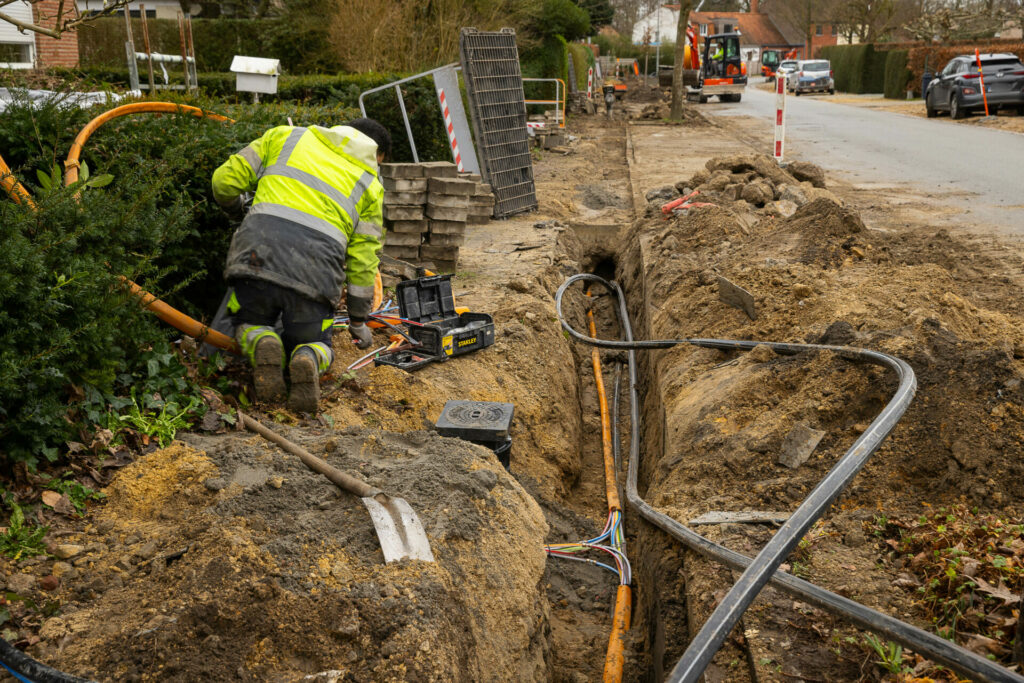Belgium is the lowest-ranking EU country in terms of connectivity, however, within the country itself, it is mainly people living in the south that do not have access to speedy internet connections.
In the European Commission's digital ranking (DESI) published last year, Belgium was put in 27th place and performed worst in terms of connectivity, mainly because it is lagging behind other European countries in the rollout of fast mobile 5G networks and optical fibre for broadband connections, which in principle enable faster internet speeds.
Belgium's electronic communication regulator BIPT at the time responded to this score with a report in which it argued that the fixed and mobile network coverage in the country is in good to very good shape. On Wednesday, it published another study taking a look at the coverage and quality of fixed and mobile networks, which it said confirmed the previous conclusions.
"Fixed network coverage in Belgium is good to very good. For instance, 99.2% of Belgians have access to a download speed of 30 Mbps and 97.2% to 100 Mbps," the report noted.
As for mobile coverage, Belgium has "very high-quality 4G coverage," as 99.9% of Belgian households enjoy good indoor coverage, according to the report.
Discrepancies between regions
However, both for fixed and mobile internet access, the differences between the capital, the north and south regions remain very significant. In Flanders and Brussels, between 85% and almost 100% of households have access to fixed internet with speeds of 1 Gbps.
Meanwhile, in Wallonia, Belgium's southern region, fewer than 50% of households have access to such speeds. Of the 38,000 households with weaker internet connection in Belgium, 31,000 live in the Walloon region.

Credit: BIPT
For mobile internet coverage, too, the percentage of Walloon households with "deep indoor" 4G coverage is lower than in Flanders and Brussels.
According to BIPT, several factors explain this difference in both cases. Firstly, Wallonia is more sparsely populated and "economically less interesting" for operators to invest in such areas.
The regulator also pointed to the fact that the cable network in the Walloon region has not yet been upgraded to the most advanced technologies even in some densely populated areas.
Related News
- €20 million federal funds to support 5G development projects
- Is Belgium's fastest internet connection actually worth it for consumers?
Deployment of 5G in Wallonia specifically has been delayed since it lacks a regional decree to revise radiation standards, however, it re-assessed those last year and a vote will be held in Parliament at the end 0f March for this reason.
Belgium's DESI score will improve significantly in the future, BIPT explained, as planned investments in 5G, fibre and state-of-the-art cable technologies come into effect, encouraged with public support through various support programmes.

